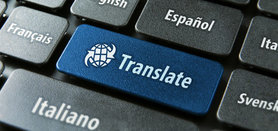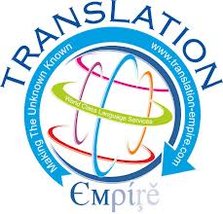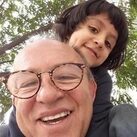- Prices/Payment
- Standard Service US$199.00
- VIP/Rush Service US$299.00
- Statement of Purpose Help
- Dr Robert Edinger, Personal Statement of Purpose Specialist
- Editing/Writing Service
- Mission
- Guarantee/Privacy Policy
- Client Testimony
- Autobiographical
- Disadvantaged Status
- Diversity
- KSA
- Undergrad
- Letters of Recommendation
- Resume /CV
- Interview!
Samples of My Work for Graduate School Admission in Translation
Career Opportunities in Translation
What Is Language Studies?
If you have a natural aptitude for languages, you can use that talent to open up careers in international trade and politics, or in helping other language communities in your area to receive full access to services and opportunities.
Keep in mind that a language major is not the same as a linguistics degree. Linguists study language itself, from the way we make sounds to the words and sentences we use. Language majors choose a particular language (and, by extension, a culture) to study and become fluent in, leading to job opportunities around the world.
Careers for Language Degree Holders
Jobs that make direct use of the skills earned in a language degree program involve either interpretation (the spoken word) or translation (written documents). Other career opportunities for language majors exist in international relations, diplomacy, intelligence gathering, literature, journalism, law, medicine, education, tourism, the Foreign Service, environmental agencies, non-profit organizations, information technology, and international commerce.
Translation & Interpretation Careers
Interpreters and translators enable the cross-cultural communication that is crucial in today's society. Translators are most in demand for the languages referred to as PFIGS Portuguese, French, Italian, German, and Spanish, and the principal Asian languages--Chinese, Japanese, and Korean.
Using a Language Degree in the Business World
Even with the growing popularity of English as the unofficial language of business, it's to your great advantage to be proficient in the language of your potential business associates. By knowing their language, you gain a deeper understanding of their culture and customs and have a clearer view of how your business fits in with their needs. Reading their newspapers, trade publications, or viewing their popular media via satellite can give you an advantage in understanding their environment and how it affects their opinions.
The more education you have as an interpreter or translator, the better, since you may be asked to deal with complex issues or very technical explanations on behalf of your client. You do more than just translate words - you relay concepts and ideas between languages.
Some interpreters and translators expand their formal education to meet the requirements of their chosen fields, such as medicine, technology, culture, or politics. Online college classes can provide training in the newest technology that aids in translation work. Special software now provides professionals with automatic translation, memory to compare previous documents on the same subject, and sources to provide further research into word definitions and usage.
Most Recently Edited Samples
- Real Estate Finance Master's Degree, Hong Kong, China
- MS, Chinese, Statistics for Technological Advancement
- MS Construction Mgmt, Indian Applicant
- Graphic Design Master's, Art History Background
- PHD Health Sciences Informatics, Chinese
- PHD Economics, Policy Analysis, Chinese
- PHD Earth Sciences, Petroleum Engineering Nigeria
- Master’s Real Estate Development, Latino, Mexico
- Doctor of Special Education, Autism Spectrum
- Masters Real Estate, Los Angeles, Indian
- MS Real Estate, NYC, Harlem, African-American
- Master’s Statistics, Chinese Woman
MA Translation Personal Statement Sample 1st Paragraph, Simultaneous Interpretation
 I know that many people have the ability to learn a second language to a good standard but I believe that what separates the competent from the excellent interpreter is a genuine fascination with the second language and its subtlest nuances together with an eagerness to constantly expand the depth of their knowledge. I have this kind of passion and interest in the English language. My ambition is to acquire and apply the highest level of skills that will initially enable me to undertake consecutive translation and ultimately to act as a simultaneous interpreter at conferences and it is for this reason that I am applying to one of the finest Master’s Programs in Translation in the world, XXXX University.
I know that many people have the ability to learn a second language to a good standard but I believe that what separates the competent from the excellent interpreter is a genuine fascination with the second language and its subtlest nuances together with an eagerness to constantly expand the depth of their knowledge. I have this kind of passion and interest in the English language. My ambition is to acquire and apply the highest level of skills that will initially enable me to undertake consecutive translation and ultimately to act as a simultaneous interpreter at conferences and it is for this reason that I am applying to one of the finest Master’s Programs in Translation in the world, XXXX University.

My own PHD is in the field of Religion, but I also studied for one year towards a Master's Degree in TESOL. After that first year, I had the privilege of taking part in a long established exchange program between my university, the University of Illinois at Champain/Urbana, and the Department of German and English Philology at the Universitat de Barcelona. One of my duties during this academic year in Barcelona (1996-1997) was to serve as a Teaching Assistant to a Professor of Translation from whom I learned a great deal, especially with respect to European languages.
Search by Degree, Field, or Country of Origin
I want to help you get a Masters in Translation.
I would be happy to provide you with a highly eloquent Statement that portrays you as someone with enormous potential to contribute to the advance of the field of Translation over the long term. After you fill out my Online Interview Form, I will ask you some specific questions by email if I need any further information. Please also send your resume/CV and or rough draft if you have one.

The Personal Statement of Purpose for Advanced Study in Translation, Masters Degree, Certificate Programs.
The first thing that one has to decide when researching translation programs is what kind of program one wants to apply to. You need to ask yourself first and foremost what kind of translator you want to be: a general translator or a translator with specific credentials such as in the areas of medicine, law, or literature.
A master’s degree or PhD in translation or translation studies generally refers to a comprehensive, general translation program. These programs are interdisciplinary and allow students to dabble in historical, literary, and scientific areas at the same time that they acquire a solid grounding in general translation skills. Computer skills are emphasized as an essential tool for translators and classes teaching the use and development of translation computer programs and glossary management are often a key component of these programs.
Graduates of translation studies programs are qualified to work in the private sector as freelance translators or for government agencies. PhD graduates often stay in academia and teach linguistics or translation studies. Like any comprehensive humanities degree, a Master’s degree or PhD in translation studies allows each student to tailor the program to his or her individual interests and the area of specialization that they want to develop. Graduate programs in literary translation leading to the MFA offer training in the theory and practice of literary translation. These graduate students generally build a specialization in one foreign language, although sometimes a program requires a candidate to specialize in multiple languages.
Court, medical, and conference translation programs are awarded at the certificate level. Dozens of translation certification programs exist in the United States and narrowing down the programs can require a lot of research. Some certificates are general French translation, German translation, Spanish translation, etc.; others are geared to a specific field: legal, medical, etc. General certificates function like the graduate degrees in translation studies, allowing for a translator to gain advanced study in the foreign language as well as to take courses specific to the profession.
It is very important that you carefully review the style and presentation of your application material for graduate school or a certificate program before submitting it, especially your Personal Statement of Purpose. Seeking the assistance of a professional writer is often a very good idea, especially if English is your second or third language. I would be happy to draft the first paragraph free of charge so that I have the opportunity to demonstrate to you how I can help in this regard. You will only need to pay for my services if you are very impressed with the first paragraph and decide to commission me to draft the entire statement.
Other Language Courses
Language certificates can provide proof of proficiency if you are already a working professional who needs to be fluent in another business language. If you decide to go for a master's degree, you can specialize in specific languages, interpretation, translation, or foreign or comparative literature. A master's degree in languages is good for anyone who wants to work as a conference interpreter or in more technical areas, such as localization, engineering, or finance.
Translating Offensive Words
Premium Statement Service by Dr. Robert Edinger
With maximum creativity, research as indicated, priority attention, and as many drafts as needed,
Dr Robert Edinger with Son David
drrobertedinger@gmail.com
1-812-675-4937
Statements of Excellence in Translation

Sample 1st Paragraph Translation Masters, Somali Woman
 Currently a permanent resident of London, I have been living in Europe for the past 14 years, the Netherlands as well as the UK. I look forward to contributing to the diversity of your program as a Somali woman who was raised in Yemen. While out of practice, I speak, read, and write Dutch although not nearly as well as English. My native tongue is Arabic and my central professional dream is to build my own translation/interpretation service working mostly with issues in Arabic/English.
Currently a permanent resident of London, I have been living in Europe for the past 14 years, the Netherlands as well as the UK. I look forward to contributing to the diversity of your program as a Somali woman who was raised in Yemen. While out of practice, I speak, read, and write Dutch although not nearly as well as English. My native tongue is Arabic and my central professional dream is to build my own translation/interpretation service working mostly with issues in Arabic/English.
Translators without Borders Kenya Healthcare Translation Training Program.
The Humanitarian Side of Translation
Translators without Borders is a community that translates to save lives. Over 3,000 volunteers use their language skills to help in humanitarian work, and you could easily become one of them.
Some translation humor was making the rounds of the Internet a while ago. Underneath a photo of an empty roll of toilet paper was the caption, “Translation is like toilet paper. No one thinks about it until they need it.”
Being invisible is not just a problem for translators. It’s also a problem for almost every international humanitarian crisis. It’s a problem that costs lives, and as the founder of the language charity Translators without Borders, Lori Thicke has seen first-hand how critical translation is to humanitarian work and how, very often, “no one thinks about it.”
Founding Translators without Borders
Thicke can’t say that she founded Translators without Borders to raise awareness of the need for translation. She founded it to support humanitarian work.
It started with Traducteurs sans frontières, a much smaller French charity and the precursor to Translators without Borders. In Paris in 1993, Medecins sans frontières (Doctors without Borders) asked her French translation company, Lexcelera, to provide a price estimate for one of their projects.
Instead of giving them a quote, she told them they would do the work for free—as long as they used the money they saved to help more people.
This was the beginning of Traducteurs sans Frontières, which she founded with her partner, Ros Smith-Thomas. Over the next 17 years, Lexcelera provided pro bono project management to support a community of professional translators around the world who assisted humanitarian organizations like Medecins sans frontières, Action Against Hunger, Ashoka, and Handicap International—through the donation of around a million words annually.
When the earthquake struck Haiti in 2010, so much translation was needed that a million words suddenly seemed like a drop in an enormous bucket. Not only could they not cope with the volume, requests for translation came in so quickly that they were unable to respond as needed. Over a thousand translators contacted them each week, wanting to help alleviate Haiti’s misery by donating their skills, but they just didn’t have the capacity to take that many volunteers on all at once.
When Communication Is Aid, Translation Matters
In a crisis, information is aid, and questions are generated, like: How do I protect myself and my family? Where is it safe for us to go, find food, water, and shelter?
Haiti taught Thicke that what people need most in a disaster can be the one thing that is in shortest supply: information in their own language.
In the words of Rebecca Petras, Translators without Borders´ Program Director: “Following a crisis, one of the most immediate priorities for both relief workers and victims is disseminating and receiving information, yet language barriers frequently complicate response efforts.”
Before Haiti, humanitarian translation in a crisis was barely even on the radar. Why? Because there were few opportunities to communicate directly with the affected population, in most cases.
At best, aid organizations would communicate with local nonprofits with the hope that there was a common language between them, and those nonprofits would communicate with the local people.
Mobile technology changed all that. Even the very poor often have access to a mobile phone. In Haiti, the cellphone towers were restored quickly, so cellphones were used en masse to seek help.
During the first six weeks following the earthquake, 40,000 messages were received at a national call number set up to coordinate aid and survivors texted for help to dig others out of the rubble, to ask for food and water, and to find loved ones.
The messages were in the language mostly spoken by the poor, Haitian Kreyol, but this was not a language understood by most of the rescuers. Haiti was the first crisis that made Thicke aware that communication had to happen in local languages.
Haiti showed Thicke that she had to change the organization if they were going to be of any use in a crisis. They needed to scale up, with more volunteers offering more languages. Until then, they had only been translating to and from a handful of European languages.
They also needed to speed the process by automating project management.
To prepare themselves to be better able to respond the next time a crisis hit, she founded a new organization, Translators without Borders, as a registered U.S.-based charity, and assembled a board of directors who were translation industry experts.
The first two goals of the new organization were to raise awareness of the importance of translation and to support humanitarian work through the donation of translation services. They were achievable with the infrastructure they set up.
One of the first actions of Translators without Borders was to team up with ProZ.com, which donated a project management platform and a full-time project manager. This allowed them to scale up their efforts almost immediately.
The community of translators grew, and they were able to donate their time to help lots more organizations. This number has grown to 490 charities at the time of writing, including Partners in Health, Kiva, Zafèn, Good Planet, and Oxfam, all of which are supported by more than 3,000 Translation without Borders volunteers.
Want to join? It does sound good, doesn´t it? If you do join, and you need help putting together a compelling personal statement that´s guaranteed to make a splash in the humanitarian world, let us know!
The U.S. Department of State has a three-part test for interpreters, including simple consecutive interpreting (escort), simultaneous interpreting (court/seminar), and conference-level interpreting (international conferences). These tests are not referred to directly as certification, but successful completion often indicates you have an adequate level of skill to work in the field.
Organizations dedicated to these professions can provide valuable advice and guidance for people interested in learning more about interpretation and translation. The language services division of local hospitals or courthouses may also offer information about available opportunities.

